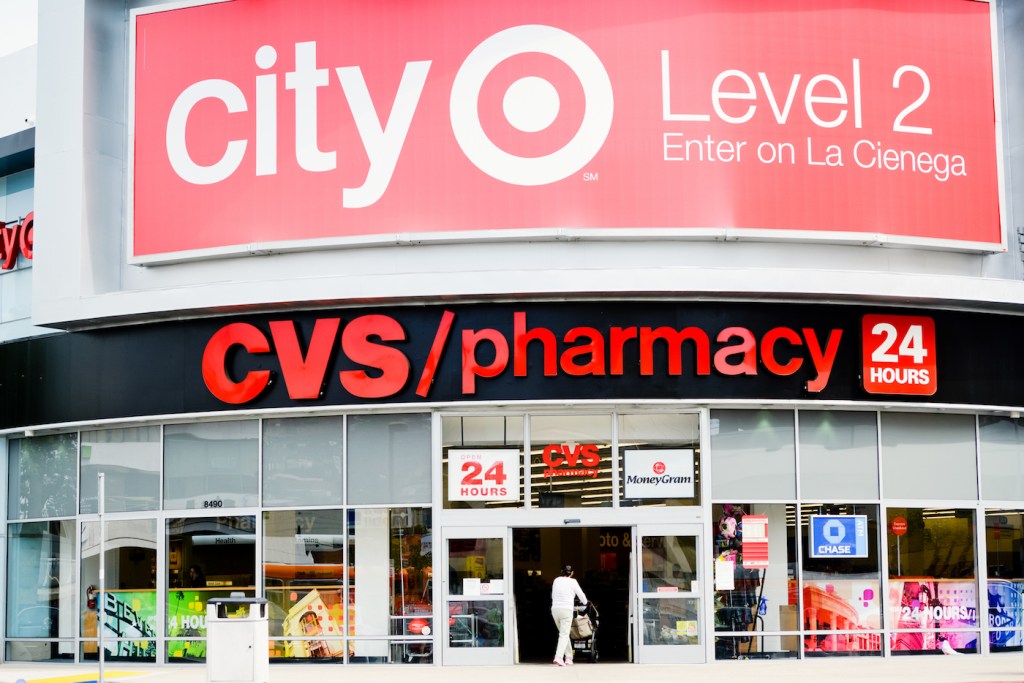How the CVS-Aetna merger could improve—or undermine—healthcare

On Sunday, CVS Health announced its intent to buy insurance provider Aetna for about $69 billion. The dollar amount makes this one of the year’s biggest business deals. But the merger also has significant ethical and legal implications.
CVS has nearly 10,000 retail outlets throughout the U.S., and Aetna serves about 50 million people. The two entities make a power couple many claim will reshape healthcare. Indeed, the deal could dramatically shift the “locus of care” away from traditional settings to pharmacy sites, said Gary Young, director of Northeastern’s Center for Health Policy and Healthcare Research. But would that shift be good for consumers?
Convenience at a cost
CVS is prolific, appearing on innumerous street corners, plus additional walk-in clinics and branded pharmacy counters inside Target stores. No matter where you live, there’s probably a CVS close by. Combined with Aetna’s network of physicians, the merger could make access to healthcare more convenient, Young said. It could also lead to better continuity of care—patients may be more likely to check in regularly and attend follow-ups if their doctor is easy to get to.
Another way the deal could benefit consumers is through the increased use of big data. “The tie up is going to create opportunities for using high-level data analytics to help identify people who may be on a trajectory for needing more expensive care,” Young said. If doctors can intervene early, patients may be able to avoid developing costly and severe chronic diseases.
But there are potential drawbacks to the merger, too. One is that individuals insured under Aetna may find they have restricted healthcare choices. “There’s going to be an effort to channel people into using CVS services as opposed to their competitors,” Young said, adding that patients seeking care out-of-network could be penalized.
There’s also speculation as to whether the level of care patients can expect to receive at a CVS store will be on par with the quality and depth of service they’ve experienced at a physician’s office. Not likely, said Timothy Hoff, professor of management, healthcare systems and health policy. He is also the author of a new book on this topic, Next in Line: Lowered Care Expectations in the Age of Retail- and Value-Based Health.
“The services in retail health settings are built for funneling lots of low-level care transactions through the system, meaning less emphasis on the complex relational care most patients need.” In addition, Hoff notes that consolidation of healthcare companies, whether hospitals or insurers, usually doesn’t lead to many advantages for consumers. “What can happen is that choice goes down, prices go up, and bottom lines get enhanced, but the patient experience does not,” Hoff said. “It also leads to what I call a cheapened form of care delivery.”
At its core, the merger is a strategic business decision—one that CVS appears to have made partially in response to “having their pharmacy business eaten away” by mail order pharmacies like Express Scripts, Hoff said. He added: “It’s not necessarily being done for the good of healthcare delivery or the good of patients.”
Profit and predation
One critique of the CVS-Aetna merger points to the potential for conflicts of interest. For example, it’s frowned upon for a dermatologist to peddle cosmetic skincare products, said professor Patricia Illingworth, who holds joint appointments in the Department of Philosophy and Religion and the D’Amore-McKim School of Business.
A physician’s main purpose is to serve patients, not sell them things. “That distinction seems to get collapsed in the case of Aetna and CVS,” Illingworth said. Both are for-profit businesses concerned with benefitting investors. And anyone who has shopped at CVS is familiar with the notoriously long receipts printed with coupons that encourage more spending. “The main mission of CVS is to sell medicine. It’s not to take care of patients,” Illingworth said. “When someone is seeking medical care, they shouldn’t be preyed upon in that way.”
Another ethical concern arising from the merger is confidentiality. Physicians are trained to honor doctor-patient confidentiality in a way that pharmacists are not, Illingworth said. With that in mind, patients may not trust their pharmacist to the same degree, and may be less comfortable disclosing details about their health or medical history.
Visiting the doctor is also beneficial in ways that can’t always be anticipated. “You might go in for one thing but they’ll see something else,” Illingworth said. And physicians are more likely to be up-to-date on the latest medical literature, such as new evidence showing that one shingles vaccine is better than another. “In the case of a pharmacist, it’s really a business transaction,” Illingworth said.
Deal or no deal
One major unanswered question in the CVS-Aetna deal is whether it will even go through. A federal court ruling earlier this year blocked Aetna from merging with another insurance company, Humana. But unlike in that case, CVS and Aetna are not direct competitors. Their merger would be considered a vertical move.
“Courts look at vertical mergers differently,” said Kristin Madison, professor of law and health Sciences. “Vertical integration can be good for consumers if it leads to lower markups and more coordination. But that doesn’t mean that vertical integration will be good for consumers—a lot depends on the details,” Madison said.
“I do think there will be concerns that this is an entity likely to accumulate a great deal of market dominance, it may raise prices and restrict choice, and it may have more control over how consumers use healthcare services than some feel comfortable with,” Hoff said. “I think you’ll probably get a very, very close look, but I think there’s a fairly good chance that it will go through because there remains this false belief in health care—that bigger is always better.”





